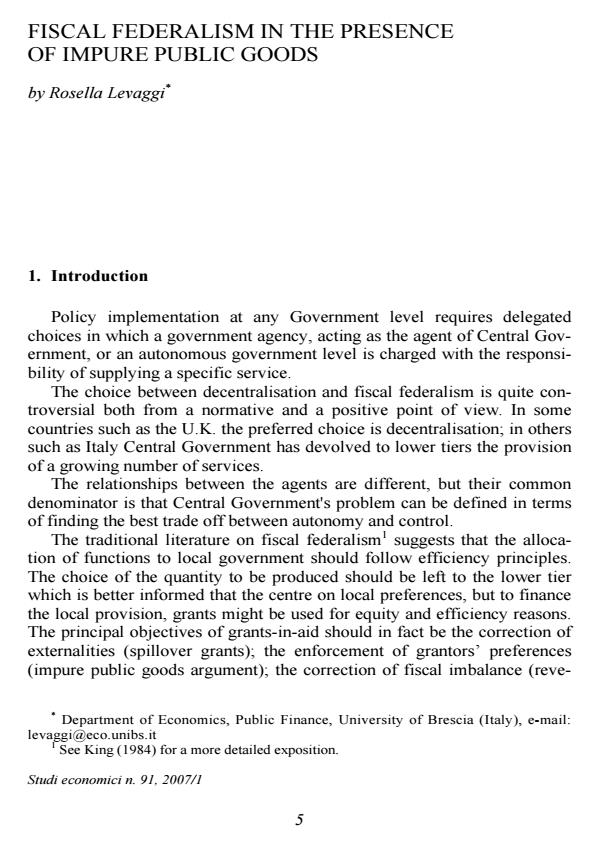Fiscal Federalism in the presence of impure public goods
Journal title STUDI ECONOMICI
Author/s Rosella Levaggi
Publishing Year 2008 Issue 2007/91
Language English Pages 19 P. 5-23 File size 238 KB
DOI
DOI is like a bar code for intellectual property: to have more infomation
click here
Below, you can see the article first page
If you want to buy this article in PDF format, you can do it, following the instructions to buy download credits

FrancoAngeli is member of Publishers International Linking Association, Inc (PILA), a not-for-profit association which run the CrossRef service enabling links to and from online scholarly content.
<em>Fiscal Federalism in the Presence of Impure Public Goods</em> (by Rosella Levaggi) - ABSTRACT: The traditional theory for fiscal federalism assumes that the lower tier is more efficient in producing local public goods because of information asymmetry, while on the finance side Central Government might be more efficient in raising resources that will then be distributed through grants-in-aid. This scheme does not take into account that services produced at local level are usually impure public goods and that Central Government might want to pursue other objectives instead of a straight maximisation of social welfare. Based on the modelling structure is based on Lancaster’s characteristic approach as applied to impure public goods by Cornes and Sandler (1994), the model developed in this paper allows to derive grants-in aid distribution formulae in this environment and a set of rules that allows to establish when fiscal federalism is a superior alternative to decentralisation. Keywords: Flypaper Effect, Grants-in-aid, Re-election
Rosella Levaggi, Fiscal Federalism in the presence of impure public goods in "STUDI ECONOMICI " 91/2007, pp 5-23, DOI: